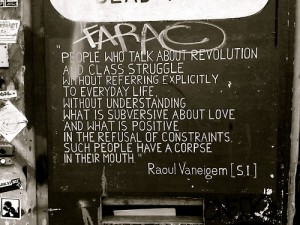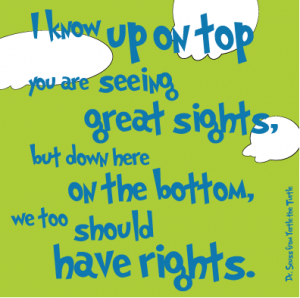Cultural Logic has just announced an epic launch of three volumes of critical scholarship addressing a wide range of issues.
Cultural Logic, which has been on-line since 1997, is a open access, non-profit, peer-reviewed, interdisciplinary journal that publishes essays, interviews, poetry, reviews (books, films, other media), etc. by writers working within the Marxist tradition.
Volumes 2011 and 2012 were edited by David Siar.
Volume 2013 is the open access version the Education for Revolution issue that was published by Works & Days in December 2013, which I co-edited with Rich Gibson. Thanks to everyone for your contributions, to David Downing and his team for publishing the issue in Works & Days, to David Siar for his editorial and site management, and to Joe Ramsey for suggesting the WD/CL collaboration for the Education for Revolution issue.
Below are the Contents for Volumes 2011, 2012, and 2013
Cultural Logic, Volume 2011
Articles
Mathias Dapprich
“A Contribution Towards a Critical Theory of School Shootings”
Jerry Leonard
“Reading Notes on Sangeeta Ray’s Gayatri Chakravorty Spivak: Polemic with Digressions on a Theory of Irreducibility”
Ronald Paul
“The Politics of the Personal in Edward Upward’s The Spiral Ascent”
Spyros Sakellaropoulos
“On the Causes of the Civil War in Nepal and the Role of the Communist Party of Nepal (Maoist)”
Larry Schwartz
“Apocalypse Then: Philip Roth’s Indignation”
Daniel Silvermintz
“Enlightenment in the Shopping Mall”
Response and Counter-Response
Mike Jones
“Some Comments on Sven-Eric Holmström’s ‘New Evidence’ Concerning the Hotel Bristol in the First Moscow Trial of 1936”
Sven-Eric Holmström
“Reply to Mike Jones”
Poetry
Christopher Barnes
(From) The Electric Chair Poems
Cultural Logic, Volume 2012
Articles
Julianne Buchsbaum
“Alienation, Reification, and Narrativity in Russell Banks’ Affliction”
Alzo David-West
“North Korea and the Theory of the Deformed Workers’ State: Definitions and First Principles of a Fourth International Theory”
Haidar Eid
“White Noise: Representations of (Post)modern Intelligentsia”
Doug Enaa Greene
“Leninism and Blanquism”
Desmond Peeples
“Toward an Anarcho-Empiricism: Integrating Precedent, Theory, and Impetus in the Anarchist Project”
E. San Juan, Jr.
“In Lieu of Saussure: A Prologue to Charles Sanders Peirce’s Theory of Signs”
Huei-ju Wang
“Becoming ‘Migrant John’: John Steinbeck and His Migrants and His (Un)conscious turn to Marx”
Poetry
George Snedeker
Selected Poems
Cultural Logic, Education for Revolution, Volume 2013
Preface
E. Wayne Ross & Rich Gibson
“Education for Revolution”
Foreword
David B. Downing, Nicholas P. Katsiadas, Tracy J. Lassiter & Reza Parchizadeh
“Forward to the Revolution” (Forward to the Works & Days Edition)
Articles
Rich Gibson
“Barbarism Rising: Detroit, Michigan and the International War of the Rich on the Poor”
E. Wayne Ross & Kevin D. Vinson
“Resisting Neoliberal Education Reform: Insurrectionist Pedagogies and the Pursuit of Dangerous Citizenry”
Julie A. Gorlewski & Brad J. Porfilio
“Reimaging Solidarity: Hip-Hop as Revolutionary Pedagogy”
Timothy Patrick Shannon & Patrick Shannon
“Learning to Be Fast Capitalists on a Flat World”
Brian D. Lozenski, Zachary A. Casey & Shannon K. McManimon
“Contesting Production: Youth Participatory Action Research in the Struggle to Produce Knowledge”
Mike Cole
“Schooling for Capitalism or Education for Twenty-First Century Socialism?”
Curry Stephenson Malott
“Class Consciousness and Teacher Education: The Socialist Challenge and the Historical Context”
Deborah P. Kelsh
“The Pedagogy of Excess”
John Maerhofer
“Undermining Capitalist Pedagogy: Takiji Kobayashi’s Toseikatsusha and the Ideology of the World Literature Paradigm”
Grant Banfield
“Marxist Sociology of Education and the Problem of Naturalism: An Historical Sketch”
David J. Blacker
“The Illegitimacy of Student Debt”
Alan J. Singer
“Hacking Away at the Corporate Octopus”
Richard A. Brosio
“A Tale of Two Cities —— and States”
Alan Spector
“SDS, the 1960s, and Education for Revolution”


